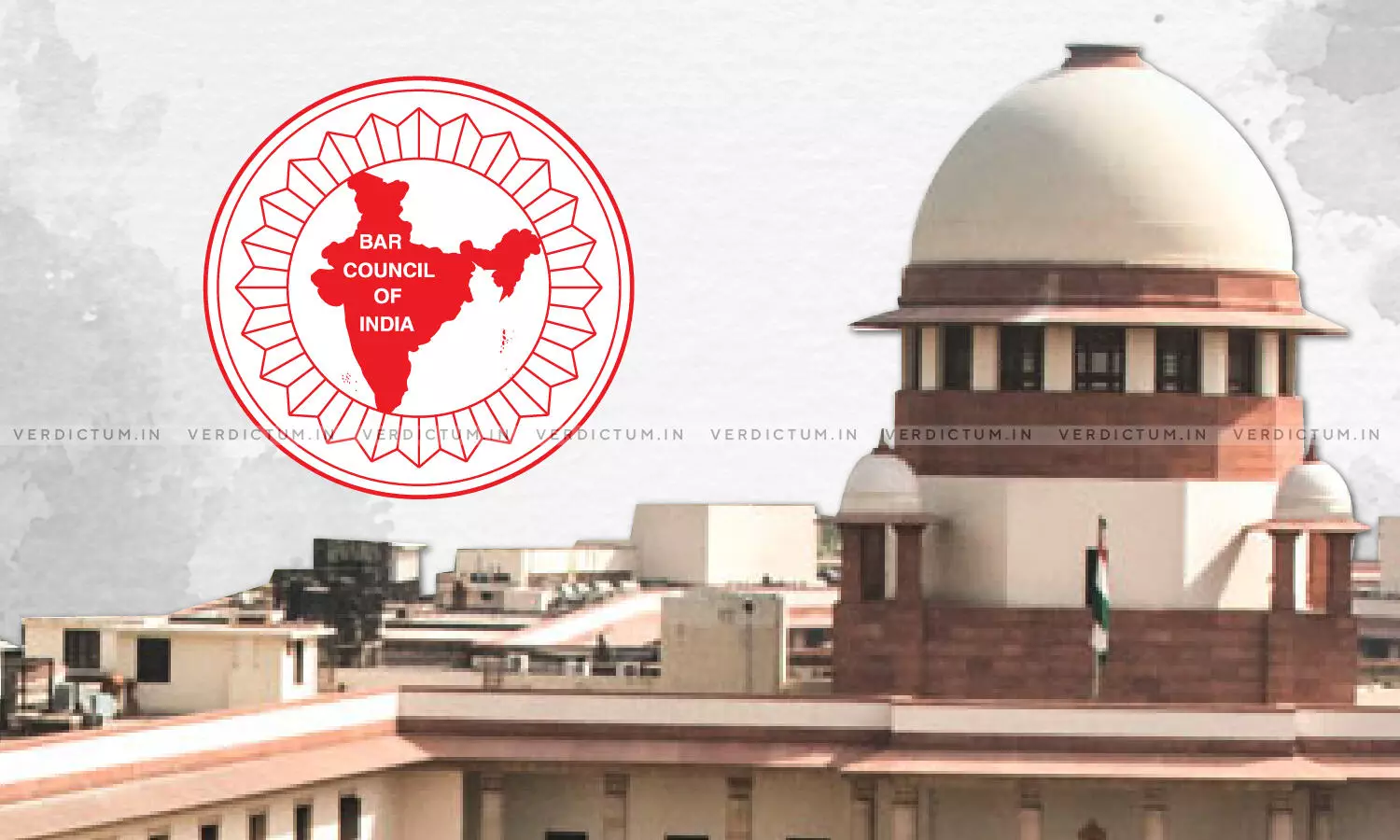
Right To Practice Law Is Also A Fundamental Right; Bar Councils Charging Excessive Enrolment Fees Created Entry Barriers: SC
 |
|The Supreme Court has held that the excessive enrolment fees charged by the SBCs contravene Section 24(1)(f) of the Advocates Act, create barriers for economically weaker sections, and are manifestly arbitrary, thereby denying substantive equality and infringing on the fundamental right to practice law under Article 19(1)(g) of the Constitution.
In that context, the Bench of Chief Justice DY Chandrachud, Justice JB Pardiwala and Justice Manoj Misra observed that, "the SBCs at the time of enrolment charge fees in contravention of Section 24(1)(f) and the legislative policy of the Advocates Act. Therefore, the excess enrolment fees charged by the SBCs are manifestly arbitrary. Further, the effect of charging exorbitant enrolment fees as a pre-condition for enrolment has created entry barriers, especially for people from marginalized and economically weaker sections, to enter into the legal profession. Thus, the current enrolment fee structure is manifestly arbitrary because it denies substantive equality. "
In that context, it was further said that, "Section 30 of the Advocates Act inheres in every advocate whose name is entered in the State roll the right to practice in all courts throughout the territory of India. Article 19(1)(g) of the Constitution provides that all citizens of India shall have the right to practice any profession or to carry on any occupation, trade, or business... Thus, the right to practice law is not only a statutory right but also a fundamental right protected under Article 19(1)(g)."
The Advocates Act was enacted to amend and consolidate the law relating to legal practitioners and establish a common Bar for the entire country. The Act created State Bar Councils (SBCs) and the Bar Council of India (BCI). Section 6 of the Advocates Act assigned various functions to the SBCs, including admitting advocates, maintaining rolls, handling misconduct cases, and safeguarding the rights and interests of advocates. The SBCs were also empowered to organize legal aid, promote law reform, conduct academic discourses, and publish legal journals and papers.
Section 7 of the Advocates Act outlined the functions of the BCI, which included setting standards for professional conduct, overseeing SBCs' disciplinary procedures, protecting advocates' rights, and promoting law reform. The BCI also had the authority to supervise and control the SBCs, impart legal education, and set educational standards in consultation with universities.
Chapter III of the Act dealt with the admission and enrolment of advocates. Section 17 required SBCs to maintain a roll of advocates and issue enrolment certificates. Section 24 specified the qualifications for admission, such as being a citizen of India, being over twenty-one years old, obtaining a law degree, meeting other conditions set by the SBCs, and paying an enrolment fee. The fee structure differed for Scheduled Castes and Scheduled Tribes, with reduced rates.
The SBCs charged various additional fees during enrolment, including library contributions, administration fees, identity card fees, welfare funds, training fees, processing fees, and certificate fees. These fees varied significantly between SBCs, ranging from Rupees fifteen thousand to Rupees forty-two thousand.
The petitioner filed a case under Article 32 of the Constitution, challenging the additional fees charged.
The Apex Court came to the following conclusions:
a. The SBCs cannot charge “enrolment fees” beyond the express legal stipulation under Section 24(1)(f) as it currently stands;
b. Section 24(1)(f) specifically lays down the fiscal pre-conditions subject to which an advocate can be enrolled on State rolls. The SBCs and the BCI cannot demand payment of fees other than the stipulated enrolment fee and stamp duty, if any, as a pre-condition to enrolment;
c. The decision of the SBCs to charge fees and charges at the time of enrolment in excess of the legal stipulation under Section 24(1)(f) violates Article 14 and Article 19(1)(g) of the Constitution; and
d. This decision will have prospective effect. The SBCs are not required to refund the excess enrolment fees collected before the date of this judgment.
Cause Title: Gaurav Kumar vs Union of India & Ors. (Neutral Citation: 2024 INSC 558)
Click here to read/download the Judgment